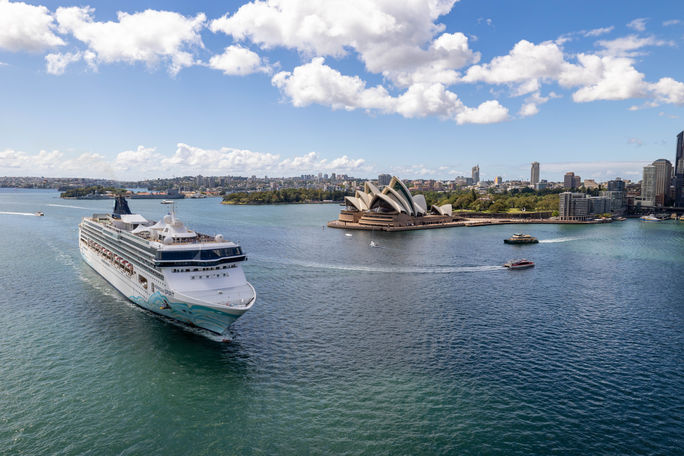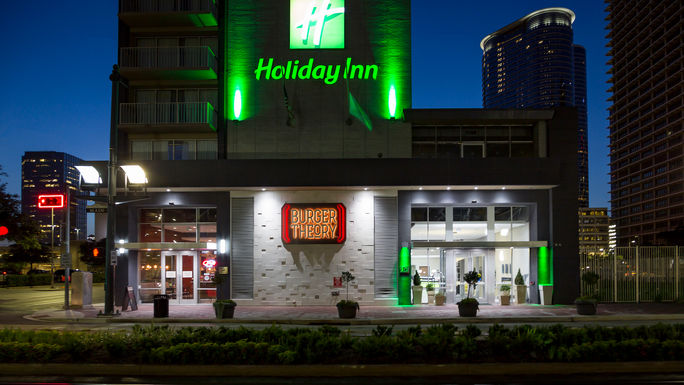Seth Godin, the great Maestro of brand marketing, spoke about the difference between Nike and Hyatt. He shared that if Nike were to open a hotel, would we have a pretty good idea of what they would deliver? Yes, we said.
However, he next asked, if Hyatt was to make a sneaker, would we have any idea what that would look like? Crickets!
This provocative question emphasizes the importance of brand marketing, identity, and equity. Building and developing a recognizable brand that has expectations, resonates with consumers, and effectively grows your business is a long-term game. There is no fast track to brand development, no way to make it happen faster. Those who want to develop a recognizable and authentic brand must commit to the long-term investment of time and resources it takes to accomplish this.
It's interesting for those of us in the travel and hospitality space that Seth selected to discuss one of our brands. He chose one of the brands that, by our industry's standards, accomplished this goal of establishing a solid brand identity. However, as he points out in his example, that might be questionable. My initial takeaway is to ask if all of the brands we respect within the travel and tourism space have yet to develop themselves to the point where the essence of who they are is transferable to other industries. Have we done as good a job as we think we have?
It's common for us and the travel, tourism, and hospitality space to pat ourselves on the back and talk about how good a job we've done prematurely. We've seen this happen too frequently over the years. Think about these questions and clarify some ways to do better in the future.
Stop Confusing Customer Loyalty With Brand Strength
As a whole, we do very well focusing on customer loyalty. Hotels have members programs, often with millions of members who collect points and regularly stay at hotels within the portfolio. Cruise lines, restaurants, and airlines all have developed something similar. Although few of these programs are innovative (quite the opposite as they are all very similar), they are worth noting as worthy of respect. This part of our business is an area where other industries could learn from our example.

Aerial view of the Norwegian Spirit in Sydney Harbour, Australia. (photo via NCL) ((photo via NCL))
However, this does not reflect the type of brand identity that Seth was talking about. A brand involves far more than establishing a loyal consumer base, which certainly helps and is a component, but there is more. A list featured in this Forbes Article contained the customer loyalty aspect as a must-have, but it was just one of thirteen items.
Seth has offered many definitions of what makes a strong brand, but this one is probably one of the best; "A brand is more than a logo, company name, or even a slogan. It's about how people feel when they interact with your business. Your brand is your promise to your customers, employees, investors, neighbors, vendors, competitors, and the world." We should focus more on building fans than collecting large email databases.
Widen Out and Embrace New Players
I had a great conversation with a very well-respected leader in the hotel industry recently, and he shared that it bothered him how "incestuous" the industry was. That's a strong word. He applied it to the habits we see with executive churn; review some LinkedIn profiles, and you can see the pattern he was talking about. A new EVP is announced at a new Hotel brand, and the introduction or release lists a lifelong career history of one Hotel brand after another. The same pattern is seen in cruise, restaurants, attractions, and airline industries.
Of course, there is value in this experience, which is why this phenomenon occurs. But many times, that experience is all you get. At best, someone with this history can help you be as good as the competition. But what are they going to add to the health of your brand? What new ideas are they going to transfer from other industries?
Ironically, we often see the opposite happening at the highest levels of some Fortune 500 companies. For example, Walgreens recently appointed a new CEO who previously worked as an executive at Starbucks. That is because brand strength is prioritized at the board level, and they are looking for transferable leadership skills rather than transferable experience.
This article gave numerous other examples and explained why that approach works in more detail. A Harvard Business Review article showed how CEOs from similar industries were more inclined to fail!
However, we are discussing the power of a brand, and the bottom line is that "new blood" and, by extension, diversity will challenge us as an organization. Those challenges will help us refine our messaging and our behavior and help us become more loved and appreciated. We will widen our net to create more fans and change how people feel about us.

Holiday Inn Houston Downtown. (photo courtesy of IHG)
Lead Rather Than React to Changing Consumer Needs
Every time a significant paradigm shift occurs, our industry struggles to adapt. As we do, there is a lot of complaining and vocalizing of what sounds like a victim mentality. It happened when OTAs hit the scene, and some are still reeling from the existence of Air B and B, and they still don't appreciate why consumers sometimes select them or prefer them over their hotels.
Cruises are heavily dependent on travel agency networks, and some within that space spend an immense amount of time changing that. Why? The bottom line here is that the consumer has selected these companies or channels for survival, and as Dr. Malcolm in Jurassic Park said, "Life finds a way."
On the one hand, we are rich with information about our consumers, are close to them daily, and understand the importance of service and being in the service industry. On the other hand, we sometimes behave as if we have no idea what the consumer wants. It is time for us to start leading that dialogue rather than simply responding to unfolding circumstances. We should be at the forefront of delivering innovative changes to accommodate consumers; sadly, that may not happen.
So, we have two pressing needs regarding the challenge that Mr. Seth Godin has put before us. As an industry, we must collectively work on our brand Identity, become more adaptive, and embrace thought leadership and change. It would be nice to become known as an industry that is always ahead of the consumer rather than lagging.
As individual brands, we need to think about developing true fans and what type of behaviors and messages we must start sharing for that to happen.
Topics From This Article to Explore